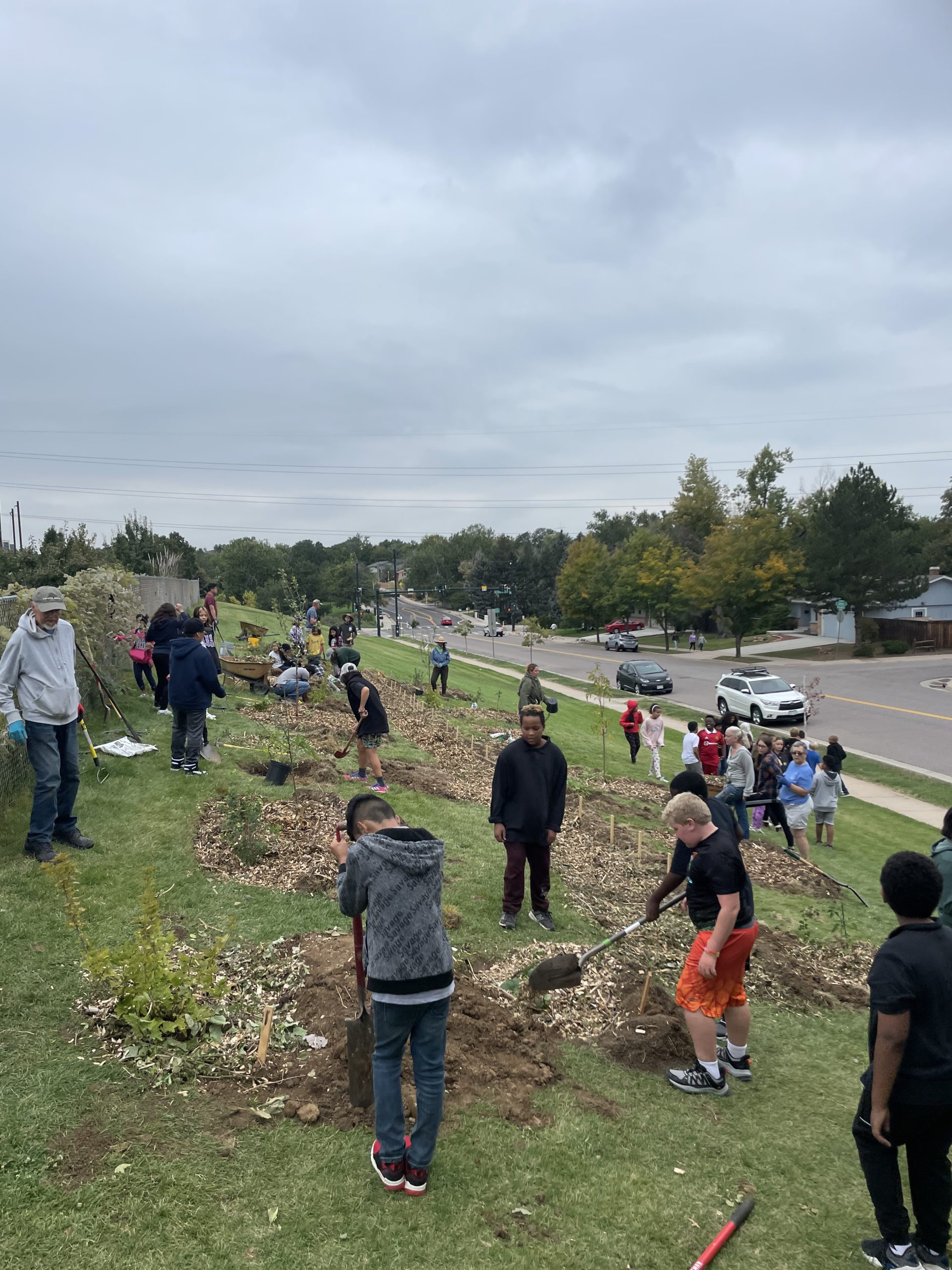What is a Food Forest?
DUG’s Food Forests are community orchards designed with nature in mind. Built to mimic forest ecosystems, these lush, layered spaces feature perennial fruits, nuts, herbs, and pollinator plants—free for the community to enjoy.
They regenerate the soil, provide shade and habitat, and turn neglected land into living classrooms. With every tree planted, they also plant the possibility of a cooler, greener, more resilient Denver.

